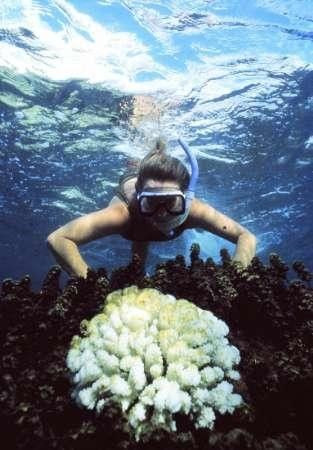5 Shocking Findings About Great Barrier Reef Report Revealed

So what was in the report that so alarming? Let's understand 5 main findings of GBRMPA report that need immediate world attention to protect this UNESCO World Heritage Site:
- Rise in Sea Temperature:
"Climate change remains the most serious threat to the Great Barrier Reef," the report says. "It is already affecting the reef and is likely to have far-reaching consequences in the decades to come. Sea temperatures are on the rise and this trend is expected to continue, leading to an increased risk of mass coral bleaching; gradual ocean acidification will increasingly restrict coral growth and survival; and there are likely to be more intense weather events."
The report has predicted that the reef might lose its coral based system with another rise of 1.5 degree Celsius due to global warming. The sea surface temperature is on constant rise since the 1900s. This creates a serious threat to the existence of aquatic life as well as to the mere existence of corals.
- Threat to Biodiversity:
Although the number of humpback whales, estuarine crocodiles and green turtles have slightly recovered, the conditions of various other species have deteriorated considerably since the last assessment in 2009. Rise in temperature along with coastal pollution has resulted in decline in sea grass abundance.
Sea Grass is an important habitat as well as a major food source of various species of aquatic life. This poses a direct threat to the marine life population directly dependent on the grass.
- Pollution and other Human Activity:
The report came out with a shocking data that 12,114 kg of toxic herbicides percolated in the reef in 2013 which in turn resulted in fuel outbreaks in coral eating starfish.
The report also clearly warned that the steady decline in quality of marine water complemented by human based run offs is one of the most significant threats to resilience of the Great Barrier Reef. Although the shipping is well regulated and managed in coral corridors, it is estimated that the number of vessels may increase by 250 per cent in next the 20 years that will increase the pollution in the reef.
- Impact of Port:
One of the most controversial issues among environmental groups is the expansion of Abbot Point port near Bowen. It is estimated that it will require five million tonnes of seabed to be dug up and dumped in the marine park. Dumped wastes in corals can double the rate of decline in reef's health.
- No Improvements:
The report ends in a downbeat mood. It clearly specifies that the reef is under serious threat and the current restoration and environmental policies might be effective but not sufficient. There are a couple of areas with improvements such as properly managed tourist and reduction in run off onto the reef.
The government is also facing the critic's heat due to its upcoming controversial coal mine project in the area adjoining marine park that is bound to greatly reduce the quality of marine water.




















